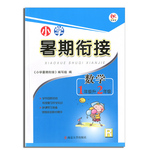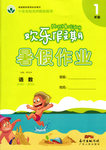题目内容
I felt to see her face.
A.disappointing,disappointed
B.disappointed,disappointing
C.disappointing,disappointing
D.disappointed,disappointed
D
【解析】
试题分析:由分词转换成的形容词用法是形容词考查较多的内容。由过去分词转换的形容词常常用来修饰人或者与人有关的事物,如look, appearance等;由现在分词转换的形容词常常用来修饰事物。这样的形容词经常在句中做表语或者定语修饰名词,也可以在句中构成形容词短语对主句的情况进行说明。所以本题第一空使用disappointed对指人的主语进行修饰。第二空用disappointed对于人有关的名词face进行修饰。故D正确。
考点:考查形容词用法

练习册系列答案
 学而优暑期衔接南京大学出版社系列答案
学而优暑期衔接南京大学出版社系列答案 Happy holiday欢乐假期暑假作业广东人民出版社系列答案
Happy holiday欢乐假期暑假作业广东人民出版社系列答案
相关题目